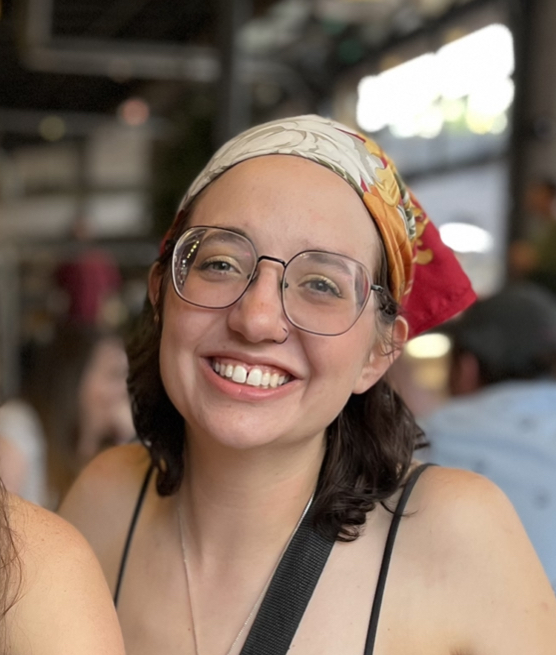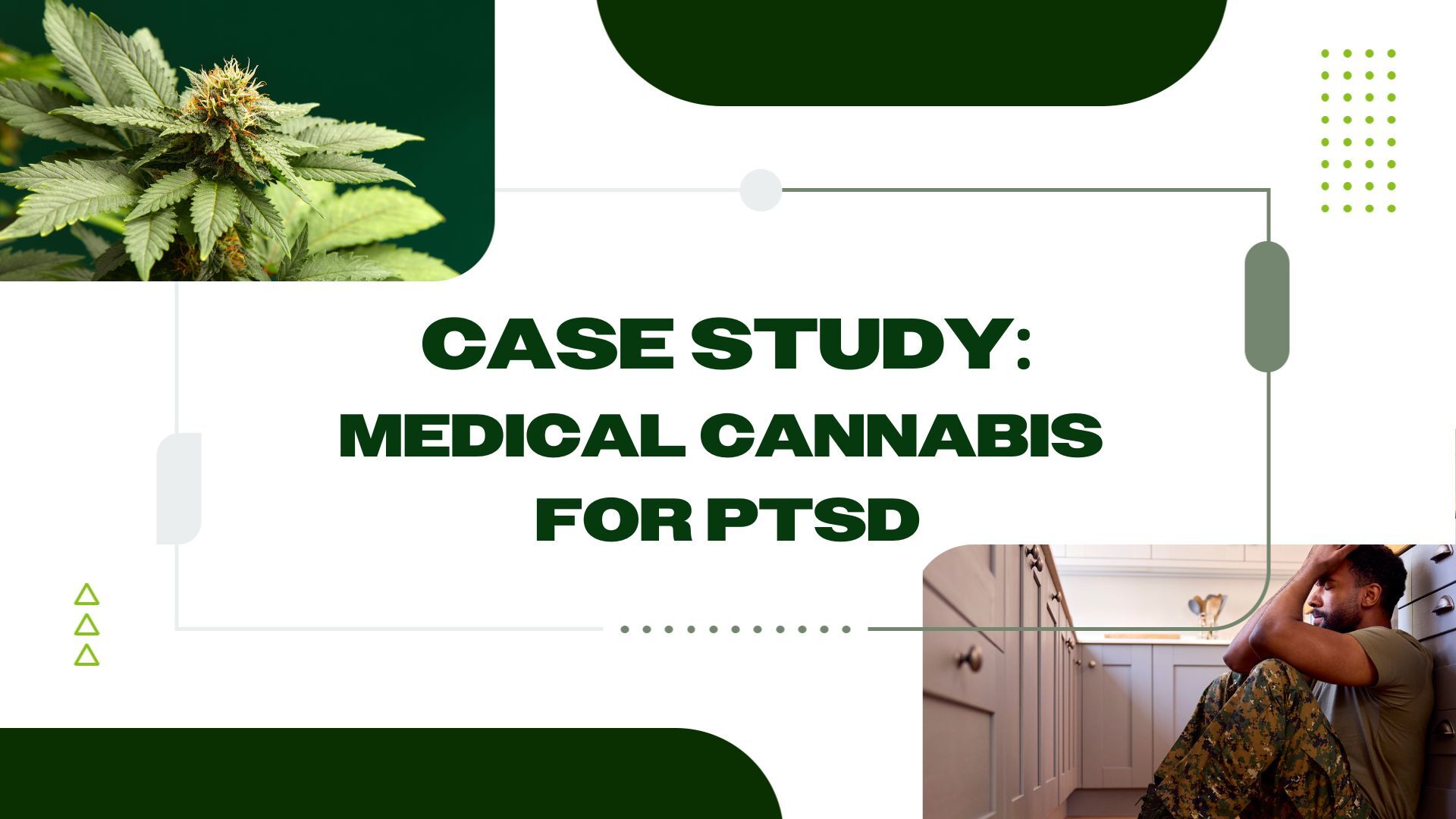The following case study was performed by Veriheal’s Medical Director, Erik Smith, MD, in 2020. The study explores the potential of medical cannabis in alleviating symptoms of post-traumatic stress disorder (PTSD) through a comprehensive review of existing literature, including scientific publications, meta-analyses, systematic reviews, observational studies, clinical trials, and case reports. The subject of the study, B.J., is a 45-year-old male combat veteran diagnosed with PTSD following his service in Operation Iraqi Freedom.
Initially treated with sertraline and diazepam, B.J. sought an alternative treatment to avoid long-term dependency on psychotropic drugs. In April 2020, a medical cannabis treatment plan was implemented by Dr. Smith, starting with a sublingual THC tincture. Over subsequent months, B.J. experienced notable improvements in sleep quality, anxiety, and overall symptoms of Post Traumatic Stress Disorder while maintaining his employment and personal relationships.
This case study highlights the therapeutic potential of cannabinoids in managing PTSD symptoms by potentially disrupting fear memory consolidation, decreasing the salience of significant stimuli, and facilitating the extinction of fear memories. The findings suggest that medical cannabis could be a viable alternative or adjunctive treatment for PTSD, warranting further investigation and consideration in clinical practice.
Objective:
The objective of this case study is to examine the potential of medical cannabis in helping patients with post-traumatic stress disorder (PTSD) manage symptoms. The case study is conducted through a review of scientific publications, meta-analyses, systematic reviews, observational studies, clinical trials, clinical experience, and case reports
Patient Information:
The patient, B.J., is a 45-year-old male and a former combat veteran who served as a Staff Sergeant and Squad Leader in Operation Iraqi Freedom. After 15 years in the United States Army, B.J. was medically discharged in 2008 due to PTSD. Currently, he works as a carpenter and retail associate. B.J. is divorced, lives in Pennsylvania, and resides in a two-bedroom apartment with his service dog.
Patient Medical History
B.J. has a complex medical history, including major depressive disorder, anxiety disorder, insomnia, PTSD, and symptoms including irritability and anger, chronic tension-type headaches, and lack of appetite. He treats these symptoms with both Sertraline and Diazepam.
His surgical history includes a leg wound debridement in 2007 and a tonsillectomy at age 5. B.J. has had several hospitalizations, including stays in an inpatient psychiatric facility in 2009 for PTSD and an alcohol treatment center for 90 days in 2018.
His social history reveals past methamphetamine use, a decade of alcohol abuse, and intermittent self-medication with cannabis over the past ten years. He now participates in Alcoholics Anonymous and Prolonged Exposure (PE) Therapy.
His family history includes a father who died of myocardial infarction at age 55, a mother with dementia, and a brother with depression.
Case Study: Medical Cannabis & PTSD
Initial Consultations & Treatment Plan
April 2020 – First Consultation
Entering this study, B.J. was taking sertraline and diazepam but was hoping to avoid long-term dependence on psychotropic drugs and sleep aids. He also expressed concern about the COVID-19 pandemic, which has exacerbated his feelings of isolation and reminded him of combat.
Why You Should Get Your Medical Marijuana Card
Veriheal has satisfied millions of patients nationwide by giving them access to these benefits
- Larger purchase limits
- Peace of mind
- Enhanced legal protection
- Access to higher potency strains
- Save up to 25% on cannabis purchases
- Skip the line at the dispensary
B.J.’s primary complaint was PTSD, with symptoms starting in 2009 following his medical discharge from the US Army. He experiences daily symptoms, broken sleep, poor diet, and anxiety. His initial Posttraumatic Diagnostic Scale (PDS-5) score was 5, demonstrating significant distress and severe symptoms.
B.J. additionally expressed concerns about the legality of cannabis use for maintaining his employment. His secondary and tertiary complaints were anxiety/panic attacks and insomnia, respectively.
Initial Therapeutic Recommendation and Treatment with Medical Cannabis
In April 2020, after discussing the benefits and risks of cannabidiol (CBD) and delta-9-tetrahydrocannabinol (THC), a treatment plan was established between Dr. Smith and B.J. This treatment plan indicated that B.J. would continue taking his prescribed SSRI while discontinuing nighttime benzodiazepines.
The treatment plan involved starting with an oral sublingual dose of a 6:1 THC:THCA tincture, beginning at 5 ml (1 mg/ml) one hour before bedtime, to establish an effective dose and avoid inhalation therapy initially.
B.J. received his state cannabis card on April 30, 2020. His case was reviewed with both a pharmacist and his PE therapist. He was also referred for Eye Movement Desensitization and Reprocessing (EMDR) therapy as an adjunct treatment.
May 14, 2020 – Follow-Up Consultation:
By May 14, 2020, B.J. had titrated his dose to 9 ml (1 mg/ml) sublingually, achieving improved sleep quality and duration without adverse effects. Regular follow-ups were planned every 1 to 6 months, with the patient documenting his dosages, administration routes, side effects, and other relevant details using a cannabinoid tracker. The PC-PTSD-5 was implemented monthly to assess treatment effectiveness and quality of life improvements.
June 15, 2020 – 1 Month Follow-Up:
At the one-month follow-up, B.J. reported significant improvements in sleep, anxiety, and overall PTSD symptoms, with a PC-PTSD-5 score reduced to 1. He had consistent sleep quality and duration, with no side effects or dreams. However, due to flashbacks activation, he stopped PE therapy and began weekly EMDR therapy. He was also encouraged to start a daytime THC 1:4 tincture.
December 21, 2020 – 6 Month Follow-Up:
By the six-month follow-up, B.J. was taking a nighttime dose of 12 ml (1 mg/ml) THC tincture and using a low-temperature dry vaporizer device with a THC 1:4 flower during the day. He reported continued improvement in psychometric properties, consistent sleep quality, better appetite, and improved personal relationships. He maintained his employment as an essential worker during the pandemic.
Conclusion:
The actions of cannabinoids on PTSD symptomatology may involve disrupting fear memory consolidation, decreasing the salience of significant stimuli, and facilitating the extinction of fear memories. Cannabis may also decrease hyperarousal and intrusive memories by activating CB1 receptors in the hippocampus, thus helping reduce PTSD symptoms. Inhaled cannabis acutely reduced PTSD symptoms by more than 50%, with higher doses predicting larger reductions in anxiety and intrusions. Long-term effects of cannabis use appeared neutral, but patients frequently used cannabis to self-medicate, reporting reduced anxiety and arousal and enhanced sleep. Medical cannabis treatment helps moderate traumatic memories, reducing and minimizing other PTSD symptoms.
References:
- Treating PTSD with medical cannabis. IMCannabis. (2021, May 27). IMCannabis
- Abizaid A, Merali Z, Anisman H. Cannabis: A potential efficacious intervention for PTSD or simply snake oil? J Psychiatry Neurosci. 2019 Mar 1;44(2):75-78. doi: 10.1503/jpn.190021. PMID: 30810022; PMCID: PMC6397040.
- Nacasch N, Avni C, Toren P. Medical cannabis for treatment-resistant combat PTSD. Front Psychiatry. 2023 Jan 19;13:1014630. doi: 10.3389/fpsyt.2022.1014630. PMID: 36741572; PMCID: PMC9893003.
- LaFrance, E. M., Glodosky, N. C., Bonn‐Miller, M. O., & Cuttler, C. (2020). Short and Long-Term Effects of Cannabis on Symptoms of Post-Traumatic Stress Disorder. Journal of Affective Disorders, 274, 298–304. https://doi.org/10.1016/j.jad.2020.05.132
Note: The content on this page is for informational purposes only and is not intended to be professional medical advice. Do not attempt to self-diagnose or prescribe treatment based on the information provided. Always consult a physician before making any decision on the treatment of a medical condition.
Author, Share & Comments








